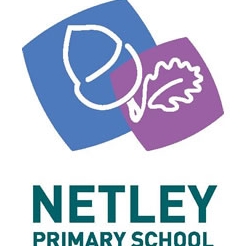10th March 2016 - Catch Up® Excellence Awards: Netley Primary School, London - BRONZE award winner (Catch Up® Literacy)
Organisation: Netley Primary School
Intervention: Catch Up® Literacy
Submitted by: Robyn Summercorn & Louise Ellery
Background
Netley Primary School is a culturally diverse school set in Regent’s Park, which has one of the highest poverty indices in England. We have a mainstream campus and specialist autistic unit, which integrate on a regular basis through learning and play. The school has worked hard to ensure that achievement is improving for all pupils through the following:
- A clear vision statement which identifies the values underpinning the work of the school.
- The School Improvement Plan, which lists the whole school priorities, sets high expectations and shapes the school’s curriculum, pedagogy and well-being of its pupils and staff.
- A rigorous monitoring programme which is supported by high quality professional development
The school continues to serve a diverse population. The vast majority of pupils are from minority ethnic groups; this is a much higher proportion than average. The largest group, which accounts for more than half of the school, are pupils from Asian Bangladeshi heritage. There is a very small White British population in the school. The proportion of disadvantaged pupils supported by the pupil premium is much higher than typically found; more than double the national average. The proportion of those who have special educational needs is higher than average and is on the rise.
We chose to introduce
Catch Up® Literacy due to the high number of children in our school who have English as an additional language, and to improve the children’s overall enjoyment of reading as well as their comprehension. It also allows children to come out of class and work on a one-to-one basis with trained
Catch Up® Literacy individuals. This is extremely important, as children who already find reading difficult, or who lack confidence, will rarely speak up in class and are often afraid to ask for help. Nearly every child – when being interviewed at the start of
Catch Up® Literacy – said they were either too shy or embarrassed to read aloud in class.
Catch Up® Literacy allows the adult to pinpoint any particular or specific needs the learner may have, whether this be comprehension, spellings, working out unfamiliar words, general confidence with reading, expression etc. We have found that
Catch Up® Literacy has had a positive effect on all of these and not only simply improving the reading age of the learner.
Implementation
Catch Up® Literacy is arranged between the
Catch Up® Literacy team, SLT and class teachers, making sure that no sessions clash with core subjects, such as numeracy and literacy.
We communicate with our
Catch Up® Literacy coordinator, SEN team and class teachers on a regular basis to monitor progress of our learners. A display board is up in the Catch Up Literacy room to support sessions with helpful vocabulary and reading strategies.
Learners are selected by senior management, class teachers and the
Catch Up® Literacy team collectively. Regular observations are carried out by the coordinator to monitor progress of students and to support the adult leading the session.
The staff selected to deliver
Catch Up® Literacy were done so based on their training and previous ability to work with struggling readers and a wide range of children. The
Catch Up® Literacy team have been sent on further training and have both achieved the Level 2 OCN award which proves that they are faithful to the intervention process. The
Catch Up® Literacy manager observes and feeds back to the adults running the sessions on where they might improve, and they were also observed by OFSTED during our recent inspection.
Standardised test results provide further evidence that
Catch Up® Literacy is working.
Case Study 1 - Catch Up® Literacy
When Child A started
Catch Up® Literacy, he had little interest or confidence in reading. English was not his first language and he had many behavioural difficulties. He began with a reading age of 8 years (chronological age 10.5) and after 6.5 months he had made significant progress, ending with a reading age of 9 years and 6 months. This showed a ratio gain of 2.75.
His concentration levels improved significantly, as did his fluency, comprehension and overall enjoyment of reading. He began to look forward to the sessions and consistently completed homework targets related to the sentence work. This child really thrives in one-to-one sessions and he could see he was improving, which was confirmed by the tests. Spelling and handwriting also drastically improved, as he appeared to take a lot more pride in his work. Furthermore, Child A managed to achieve a level 4 in his literacy SATs.
Aims
Our primary aim is to encourage every child to be curious, creative and challenged. Our staff provide stimulating and meaningful lessons, often working with specialists, entrepreneurs and artists to make learning a rich experience.
